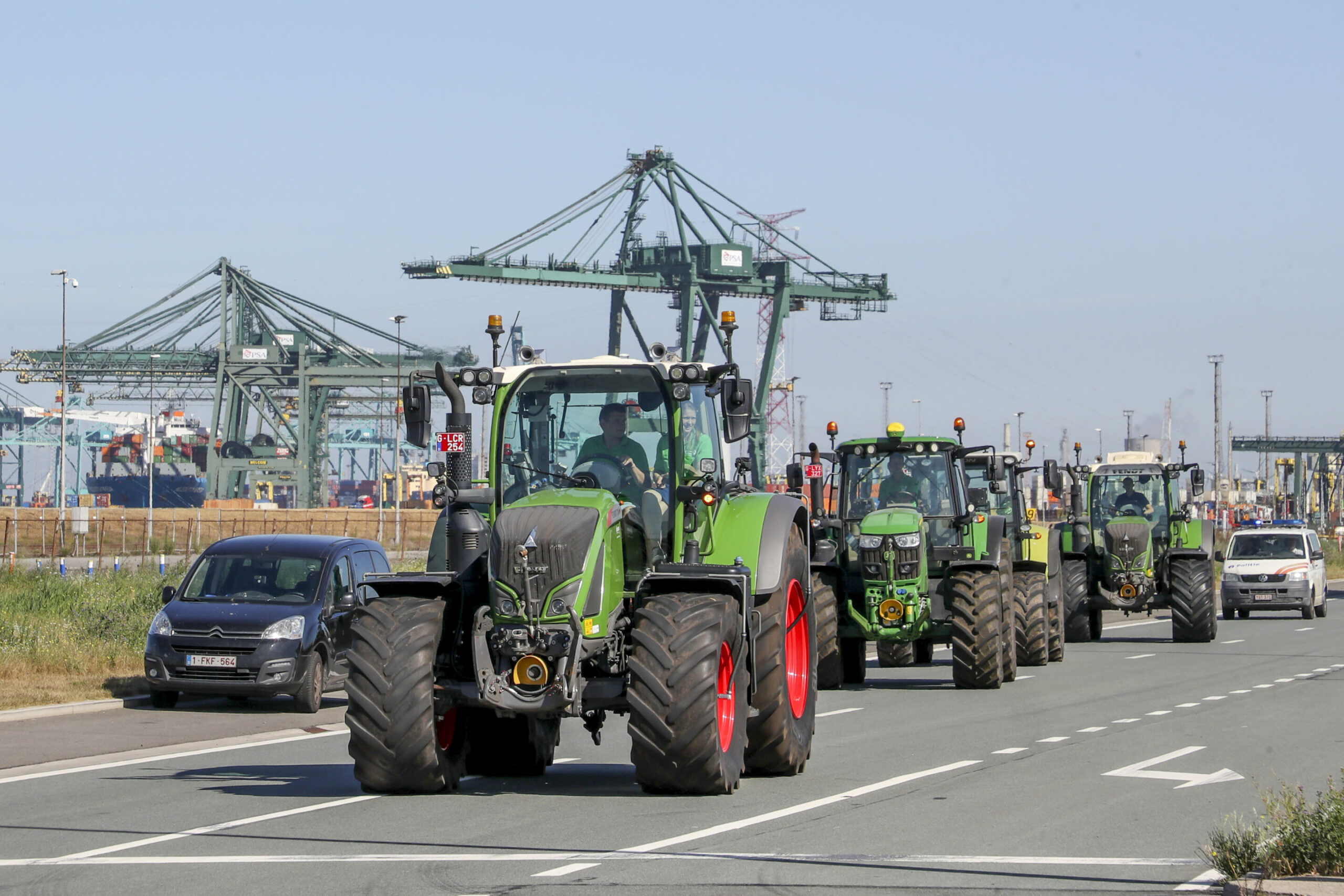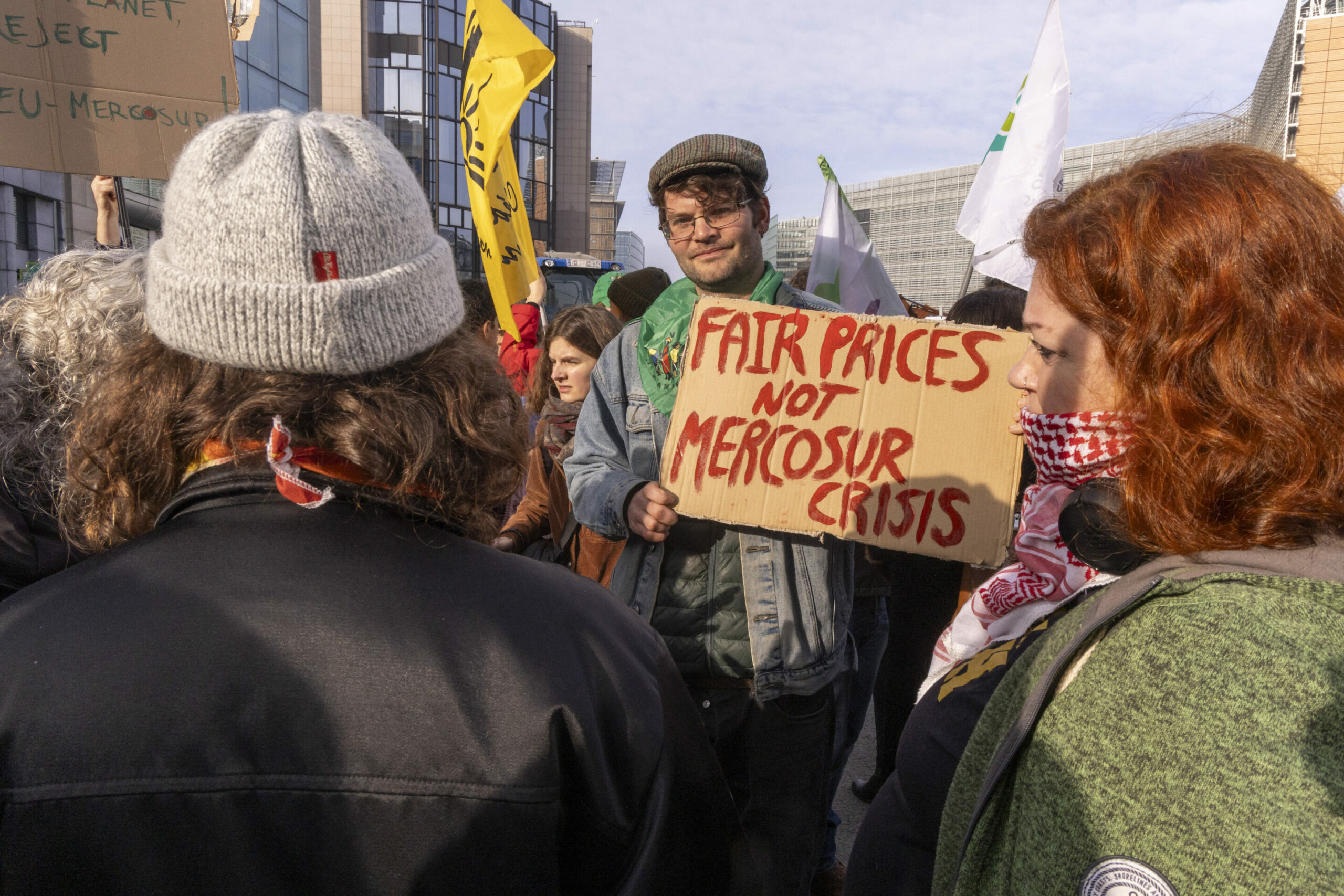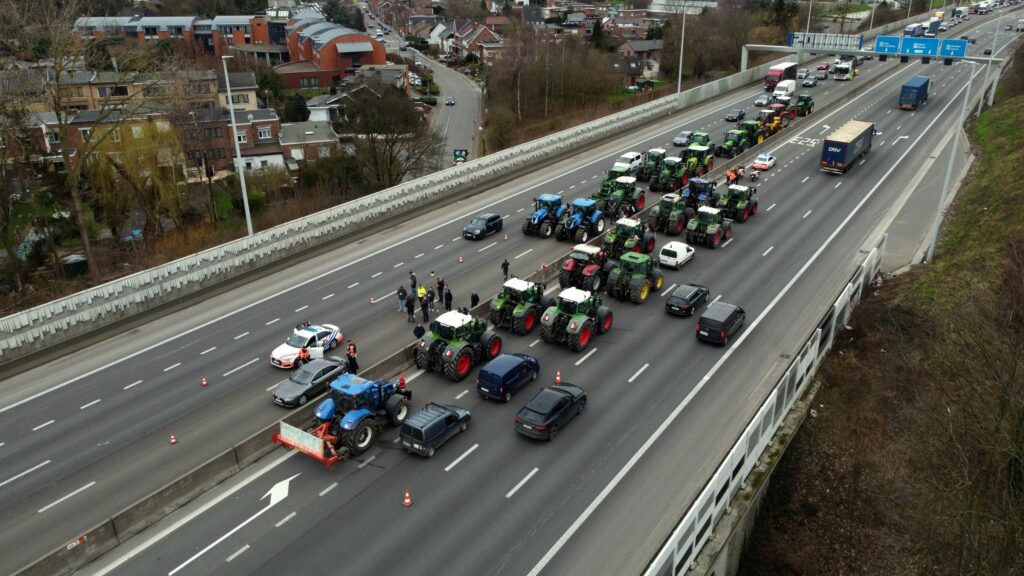Belgian farmers will block the country's borders from Wednesday evening as part of another protest against the Mercosur free trade agreement. Traffic on several key routes near the borders will be affected.
Farmers in Belgium are blockading the country's borders this week to protest the free trade agreement between the European Union (EU) and four of the five Mercosur countries (Argentina, Brazil, Paraguay and Uruguay). The agreement will remove tariffs and other trade barriers.
The farmers are once again taking to the streets of Belgium on the eve of a summit in Montevideo (Uruguay) on 5 and 6 December. It is expected to be a crucial moment before a final decision is made at the European Council meeting on 19 and 20 December in Brussels.
Which areas will be affected?
As part of the protest action, farmers are expected to block the key roads near the country's borders with their tractors. Farmers will meet at various locations in Nivelles, Merbes, Binche and Tournai from 19:00. They will then move to the motorways to block the roads for drivers, Le Soir reported.
The Federal Police told The Brussels Times that it could not yet confirm what disruptions are expected due to the protest, however, Belga News Agency reported several locations that will reportedly be targeted.

Protest action of 'Groene Kring', the largest organisation of young farmers and horticulturists in Flanders, Wednesday 3 August 2022, in the Port of Antwerp. Credit: Belga / Nicolas Maeterlinck
Specifically, the border crossing on the E42/E19 in Hensies will be blocked from 22:00 on Wednesday.
There will also be a blockade on the E40 near Eupen, in German-speaking Belgium, as well as on the N89 near Bouillon, in the province of Luxembourg. A blockade is planned for Thursday morning on the E25 at Visé, in the Liège province, near the border with the Netherlands.
Le Soir reported that farmers are also planning to meet at the 'rond-point des vaches' in Battice, slightly further inland. This is the location of the interchange between the A3 (E40) and the A27 (E42).
Food safety and competition
Farmers in Belgium and other European countries have publicly expressed their anger with the possible free trade agreement for months.
In mid-November, some 100 farmers gathered near the EU institutions in Brussels to voice their concerns ahead of the G20 summit in Brazil. At the protest, farmers told The Brussels Times that their anger would "explode again" if the agreement were signed.
Farmers fear that cheap products will flood the European market and create unfair competition.

Farmers took the streets of the European Quarter in Brussels in November 2024 to protest the EU-Mercosur Trade Agreement. Credit: Belga / Nicolas Maeterlinck
They are also concerned about consumers' safety, as the deal will open EU markets to products that are not subject to the same food safety requirements, meaning they are produced under much lower standards. This particularly applies to beef products, which may contain antibiotics and growth hormones forbidden in the EU.
Belgium's trade and services federation, Comeos, mirrored this argument on Tuesday. "We sell products that must comply with the strictest rules. We do not want products from outside Europe entering our market that do not meet the conditions with which our local producers must comply," said Comeos' CEO Dominique Michel.
The organisation argued that the current agreement on the table is not possible. It said that all obligations imposed on European farmers must also apply to farmers in South America.
Outgoing Federal Agriculture Minister David Clarinval (MR) said in a statement to The Brussels Times that he understands the farmers' anger, adding that Belgium called for the addition of sustainable development provisions. He sent a letter to the Commissioners for Trade and Agriculture in May two years ago on the impact of trade agreements on the agricultural sector.
"For the deputy prime minister, it is clear that without binding mirror measures, we will not be able to support this agreement," Clarinval's spokesperson said. "Pragmatically, he therefore advocates the adoption of unilateral and general mirror measures." He added that the impact on sensitive agricultural sectors will be a crucial element in determining Belgium's position.

